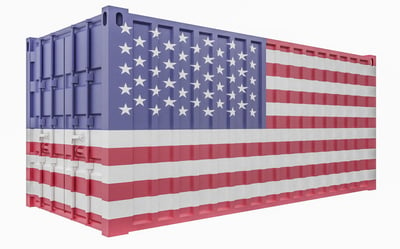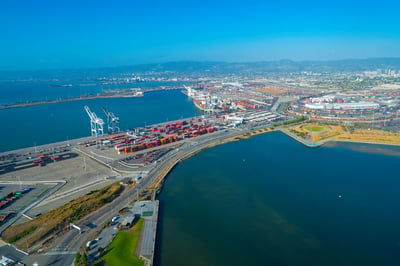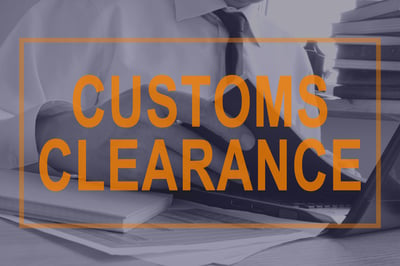Basic Guide to U.S. Customs for Importers
If you're planning to start an importing business, U.S. Customs will likely become something you will need to understand. U.S. Customs and Border Protection (CBP) is a part of the U.S. Department of Homeland Security (DHS) and CBP is in charge of regulating all goods imported into the United States from other countries.
The CBP is one of the oldest government agencies dating back to 1789. The job of CBP is to collect duties, provide security for the borders, and act as the gatekeeper for more than 100 government agencies. When importing goods into the U.S., you will deal directly with the U.S. Customs, even if CBP is enforcing regulations from other government agencies, such as the Environmental Protection Agency, Food and Drug Administration, Federal Trade Commission, or the International Trade Commission.
Obtaining clearance from CBP isn't always an easy task. It's important to take the proper steps to gain access through U.S. Customs. Hiring a skilled customs broker in the USA will make the entire process of importing goods much easier. Your customs broker will be able to ensure all your goods meet the necessary requirements and help to ensure all duties, taxes, and fees are properly paid.
Will a License be Required to Import Goods into the U.S.?
If you are an individual importer or exporter, you will not need a license to conduct transactions with U.S. Customs and Border Protection. However, if you're a broker conducting business on behalf of an importer, you will need a valid Customs Broker license. As an importer, it's best to hire a licensed customs broker in the United States to make the process much easier.
While a license or permit may not be necessary from the CBP to import goods, a license or permit may be necessary from other government agencies, such as the FDA, DOT, EPA, FTC, etc. Not all merchandise will require special licensing or permits, but some types of merchandise may. Commonly, food products, animals, plants, prescription medications, trademarked goods, and copyrighted materials will require special permits and/or licenses.
It's vital that you understand and comply with the importing laws and regulations or your goods may not pass through U.S. Customs easily, or at all. The best way to ensure your goods will make it into the U.S. smoothly is to hire a customs broker with a great reputation. Cole International has several years of experience helping importers get through U.S. Customs. We are here to help and ready to ensure your goods make it into the USA on time, without delay.
Entry of Goods Through U.S. Customs
When your shipment reaches the border, the purchaser, owner, or a designated licensed customs broker needs to file the entry documents for the goods. This person is known as the importer of record.
Once the paperwork is filed, the CBP must authorize the entry of the good and the estimated duties will need to be paid. The necessary documents include:
- Entry Manifest or Application and Special Permit for Immediate Delivery
- Evidence of Right to Make Entry
- Packing List, if necessary
- Commercial Invoice or Pro Forma Invoice
- Additional Document for some Merchandise
U.S. Customs Examination of Goods
Along with the paperwork, your goods may be examined as security is one of the highest priorities for the CBP. They will examine the goods to ensure they are safe to cross the border. This examination will be used to determine:
- The dutiable status
- The need for goods to be marked with a country of origin or special marking
- If the shipment contains any prohibited items
- The accuracy of the invoice
- If the shipment contains any illegal narcotics
Typically, goods imported through U.S. Customs must be marked with the country of origin in English.
Merchandise Not Allowed Through U.S. Customs
Some merchandise may be restricted based on the determination of the CBP. A full list of restricted and prohibited items should be checked before making arrangements to import goods into the USA. Some of the restricted items include:
- Arms, Ammunition, Explosives, and Implements of War
- Radio Frequency Devices
- Radiation Products
- Conflict Diamond
- Pesticides and other Toxic Substances
- Counterfeit Products
- Certain Artifacts
In addition to the specific goods that are banned from passing through U.S. Customs, goods from specific countries may not be allowed into the U.S. The Office of Foreign Assets Control imposes many sanctions on imports and exports based on the individual, company, or country. Some of the countries with a full or partial trade embargo include:
- Burma
- Cuba
- Iran
- North Korea
- Sudan
- Syria
Quota Information and Quota Requirements
Before you start importing goods through U.S. Customs, you should take the time to understand the CBP quota information and quota requirements. Import quotas help to control the volume or amount of specific commodities coming from another country into the United States during a specific period. These quotas are divided into absolute and tariff-rate.
Absolute quotas apply to some textiles or food products, in most cases, and provide a strict limit on the quantity of specific goods entering the U.S. during a specific time. Tariff-rate quotas typically apply to an amount of merchandise you can import at a reduced rate of duty during the quota period. After reaching the quota, you may be able to import more goods, but it will be done at a higher rate of duty.
The process of importing goods through U.S. Customs can be overwhelming. These are just a few of the many things you will need to know if you plan to import merchandise into the United States.
Hiring a trusted customs broker working in the USA makes the process of importing much easier. Since your customs broker will deal with U.S. Customs on a regular basis, they will not only understand the many regulations you need to follow, but they will also stay up-to-date on any changes.
Understanding U.S. Customs Duty Rates & Import Fees
The duty you will pay when your goods arrive at the U.S. border varies greatly, depending on what you're importing and how much you're importing. The Harmonized Tariff System or HTS will provide duty rates for any item you want to import. It has become a reference manual for duty rates and many experts have spent years learning how to classify items based on the HTS.
Other U.S. Customs import fees may also be necessary including federal taxes and fees associated with other federal agencies and found under the Consolidated Omnibus Budget Reconciliation Act (COBRA).
Not all goods are subject to additional fees and taxes. However, some goods, such as alcohol, will require a federal tax when importing into the U.S.
Another possible U.S. Customs import fee is known as the user fee. This fee may be collected by the CBP and the amount will depend on the mode of transportation bringing the goods into the U.S. and the type of entry needed. For example, informal and formal entries are subject to the Merchandise Processing Fee or MPF.
Along with the U.S. Customs duty rates and import fees, you may also need to pay state and local taxes based on the state, city, and county you'll be importing the goods into. It's best to contact the local or state treasury office to find out about these fees. However, the CBP doesn't collect taxes for states, counties, or cities, so these fees will not be paid at the border.
While the duty, taxes, and fees you may need to pay should be estimated ahead of time, the CBP will make the final determination. If you need very specific duty information for a specific item, you have the option to request a Binding Ruling. Of course, hiring a customs broker in the U.S. will go a long way to ensuring you have accurate duty rate estimates and estimates for all other U.S. Customs import fees.
Tips for Importing Goods Through US Customs
There are plenty of things to understand about U.S. Customs and CBP before you start importing goods into the U.S. A customs broker will help take the guesswork out of the process. In addition, the following tips will help make it a bit easier.
Make Sure Your Goods Meet All PGA Requirements
PGA stands for Partner Government Agencies and these departments have regulations for the goods entering the United States. While CBP may not have any specific regulations for your goods, a PGA may and CBP will enforce those regulations.
Several items will not be able to be imported without a permit, license, or some type of additional documentation. Everything will need to be properly marked, as well, and there are some exceptions found on J-List Exceptions. The exceptions typically apply to goods very difficult to mark, such as washers, cut flowers, firewood, bolts, and nuts.
When these goods are imported in a container, the container may need to be properly marked.
Know the Duty Fees and Taxes
One of the worst things you can do is arrive at U.S. Customs, have your goods make it through inspection, and not have enough cash to pay the duty fees and taxes. By using the HTS codes, you can determine the duty fee and taxes you will need to pay. If you're unsure, it's best to hire an expert customs broker to ensure there are no surprises at the border.
Speak with the CBP Office Before Importing
Once you have determined the port of entry you will use, make sure you speak with the CBP Office ahead of time. They will be able to answer questions you may have about the process and give you details regarding your upcoming transaction with the CBP.
Make sure you're ready to answer questions about the country of origin, the manufacturer of your goods, the composition of your goods, the price/value of the goods, and the intended use of the items.
Importing goods through U.S. Customs isn't easy, especially if you're new to the process. With the help of a U.S. Customs Broker, the process becomes much easier. When you choose Cole International, we will take care of the entire process for you. Our team will ensure the paperwork is properly filled out and filed, along with providing accurate estimates for duty fees and other import fees and taxes.
As an importer, getting your goods through U.S. Customs on time matters. We understand your needs and we know how to work with CBP to ensure your goods make it across the border safely, securely, and in a timely manner.
Importing goods. It's what we do.
Suggested Blogs on U.S. Customs:

